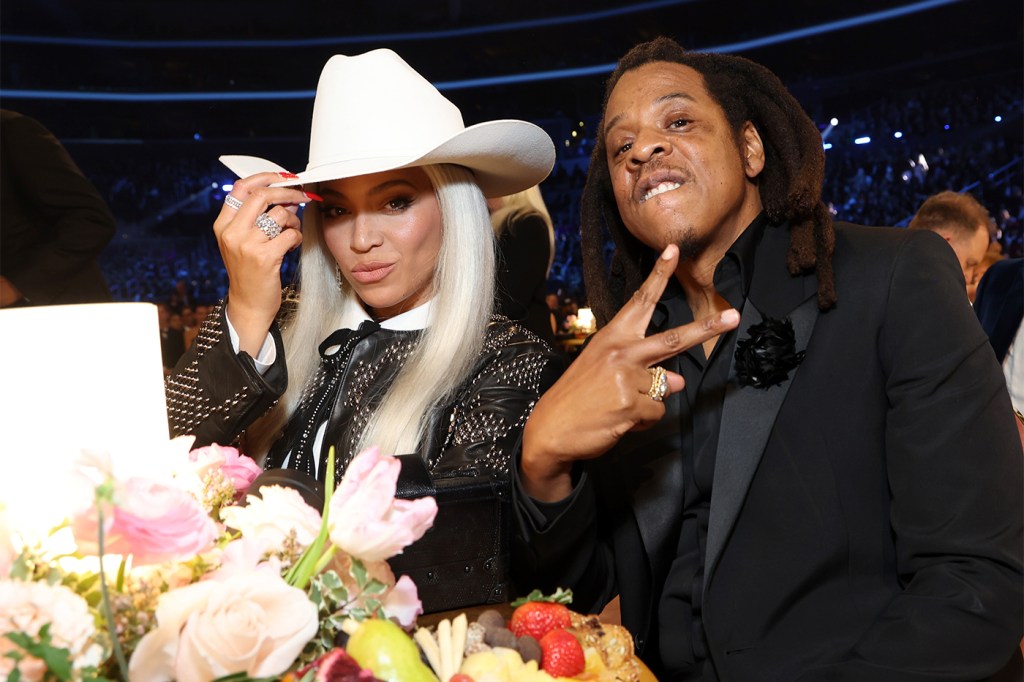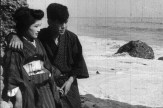Beyoncé is the first Black female solo artist to top country music charts. Here’s why that’s significant
Beyoncé has tried to lean into her country roots before, but she’s now topping country charts with her new single “Texas Hold ’Em.” Her new album, “Cowboy Carter,” was released on Friday, March 29.

Beyoncé recently became the first Black female solo artist to top Billboard’s country chart with her new single “Texas Hold ’Em.”
Despite coming up through R&B and pop music, Beyonce’s newest tracks represent a return to her Southern roots. Her new album, “Cowboy Carter,” was released on Friday, March 29.
Beyoncé Giselle Knowles was born and raised in Houston.
“When we think about someone like Beyoncé, country music is part of their world,” said Francesca Inglese, an assistant professor of music and affiliate professor of Africana studies at Northeastern University. “There is gatekeeping amongst fans and the industry … and I think that will change with people like Beyoncé who are so popular.”
Featured Posts
Beyoncé started out her career in R&B and became famous when performing as a member of Destiny’s Child. Over her solo career, Beyoncé has branched into pop, hip-hop and dance music.
Her first foray into country music — “Daddy Lessons,” a twangy number on her 2016 album “Lemonade” — was allegedly rejected by the Grammys from the country category. Beyoncé also faced backlash when performing “Daddy Lessons” with The Chicks at the 2016 CMAs. A country music station in Oklahoma even initially refused to play her latest singles.
Beyoncé’s successes in other genres set the stage for her to transition into country, said Prince Charles Alexander, a Grammy Award-winning artist, producer and professor at Northeastern University.
“What’s the most natural lane for Beyoncé to move into, somebody that was born in Houston? Country music,” Alexander said. “There are some elements (of her music) that don’t necessarily marry up to the purity of the country aesthetic, which is a single singer singing with a band of live musicians. … But that’s a very thin veneer of trying to stop somebody because there’s a whole bunch of country artists that don’t use live bands that sing harmony in different kinds of ways. … Trying to use that as a hurdle for Beyonce was a fool’s errand because now she’s at the top of the charts.”
There are successful Black country artists, including the Pointer Sisters, Darius Rucker, Kane Brown, Mickey Guyton and Charley Pride.
Rucker has had 11 top 10 country hits, Brown has had 13, and the Pointer Sisters won a Grammy in 1975 for Best Country Vocal Performance for “fairytale.”
Guyton was the first Black woman soloist to earn a Grammy nomination in the country field and the first Black woman to receive a new artist of the year nomination at the CMAs. Breland has also had several top 40 country hits.
However, a Songdata study looking at country music between 2000 and 2020 found that BIPOC artists make up less than 4% of the commercial country industry.
There’s been notable examples of Black artists in particular being shut out, from Lil Nas X’s country-rap crossover “Old Town Road” being pulled from the charts in 2019 (until Billy Ray Cyrus came in to create a remix) to Tracy Chapman’s “Fast Car” not getting recognition until it was covered by Luke Combs. When Combs’ version earned Song of the Year at the Country Music Awards last year, the award went to Chapman, and she was the first Black solo artist to win it. Chapman also won a Grammy as Best Female Pop Vocal Performance for “Fast Car” in 1989.

A lot of this disparity can be traced back to the early American recording industry, Inglese said. Country music’s roots are in the ballads and fiddle tunes from white Southerners with Irish, Scottish and British roots, and in African American blues, slave work songs and spirituals.
But in the 1920s, the music industry began marketing “race records,” which was a category of music by and for Black people. These records encompassed a range of genres and the category was a tool used to sell music to Black consumers. At the same time, what we now know as country music was marketed as its own genre, hillbilly, and aimed toward white people.
“There were a lot of multiracial recording sessions that’d get released and African American fiddlers or banjo players would get left completely off these recordings,” Inglese said. “There’s a real effort to perpetuate an idea of this genre as the ‘authentic purview’ of white rural Southerners…through industry practices that separated musical genres along racial lines.”
In releasing country music, Inglese said Beyoncé is “unmasking the Black roots and long-standing presence of Black artists” in the genre, adding that Beyoncé brought on Rhiannon Giddens to play banjo and viola on the track. Giddens is an esteemed Black country musician who has long advocated for honoring the roots of the genre.
We still live with the aftermath of early industry practices today, Inglese said, and while it affects all music, the contrast in country is stark. Country music is now a genre of “cowboy hats, beer, trucks, dogs and hometown” as Alexander put it.
But Beyoncé’s celebrity makes it easier for her to start producing country records.
“This will be successful for Beyoncé because Beyoncé has enough influence in the music industry to make her voice heard. … She’s already a known commodity,” Alexander said. “Her country songs are pretty good. If you’re country and you don’t like pop music, now this very successful artist has given you something that you can gravitate toward. … Most artists are broader than the lanes they’re stuck in. … Beyoncé is trying to open up a lane for some other artists that are not as successful as her.”











